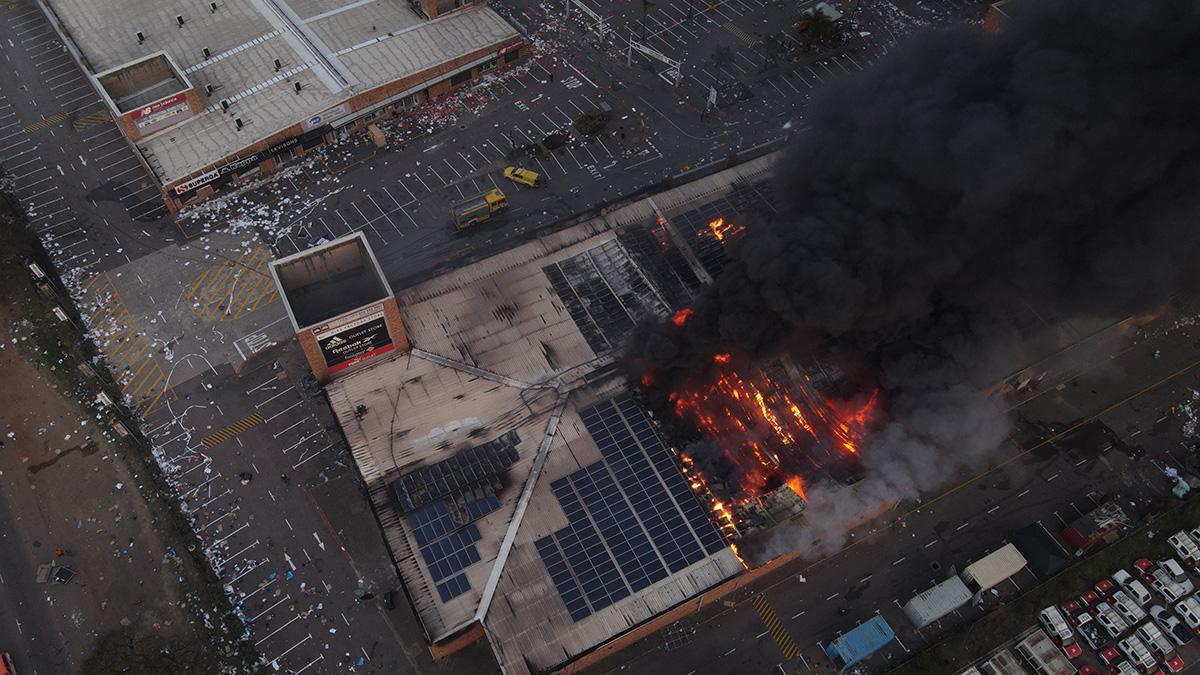Africa-Press – South-Africa. South Africa is facing a near-perfect storm that may result in widespread social unrest and political violence as the country continues to fail to course-correct.
This storm is made up of skyrocketing electricity prices, sporadic water shortages, and the ANC’s looming elective conference in 2027, leaving the country with an increasingly lame duck President and executive.
These warnings have come from various corners of society, ranging from the Electricity Minister and the President through to civil society organisations.
Electricity Minister Kgosientsho Ramokgopa has repeatedly warned that rising electricity prices will meet some form of resistance from local communities as basic needs become increasingly unaffordable.
Ramokgopa explained that this resistance may come from organised crime syndicates that make money through illegal connections in informal settlements.
“Suddenly, you want to regularise them to pay for consumption. So, you will find a situation where people decide they’re going to close the streets. There’s no one going to come into our area,” said Ramokgopa.
“That’s the form of protest that you are likely going to get, but we are confident because we do have those skills of social facilitation engaging through ward consellors.”
This forms part of the broader discontent with repeated above-inflation increases to electricity prices over the past fifteen years, with prices rising by 1,000%.
While this pushes those who can afford alternatives, such as solar, to dump Eskom, those who cannot afford different power sources may turn to other means to voice their discontent.
The ongoing water shortages in parts of Gauteng have also shown that the prolonged interruption of basic services can lead to unrest.
Earlier this year, President Cyril Ramaphosa issued a dire warning that water shortages and pervasive corruption within the water supply sector is likely to result in social unrest.
South Africa has been plagued by ageing and poorly maintained water infrastructure, with vandalism and illegal connections also on the rise.
Local municipalities are also beset with financial mismanagement, insufficient revenue collection systems and high levels of water losses.
This has been coupled with widespread corruption at water boards and municipalities, particularly in relation to the rise of the water tanker mafia.
“These are problems impacting a country with a growing population, which is one of the most water-scarce countries in the world,” the President said.
If these problems are not addressed, Ramaphosa warned that South Africa will face a perfect storm that is already resulting in social unrest.
“These factors make for what is called a perfect storm – where dry taps, broken infrastructure, and poor management of water resources at local government level is fuelling growing public discontent,” he said.
“Grievances with water and sanitation delivery are behind a number of social protests across the country.”
Out of control
These crises are occurring at a point in time when South Africa’s President and executive branch appear to be unwilling to take decisive action to address the country’s challenges.
The executive branch also appears increasingly unable to exercise control over key institutions such as the military and police.
Apart from the widespread corruption being unveiled and alleged at the Madlanga Commission, high-ranking military officials have recently been sharp critics of the government and have taken foreign policy into their own hands in some cases.
Efficient Group chief economist Dawie Roodt explained that while people may agree with the opinions shared by these individuals, it is not their job to drive political change.
Roodt said these concerns, particularly those related to how the state is run, should be addressed in the political sphere and not come from law enforcement or the military.
“It is the job of civilians, political parties, and the government to do these sorts of things. I disagree with who our politicians align themselves with internationally, but that is their job,” Roodt said.
“If you do not like it, then you can vote them out. That is not the job of a military official to dictate foreign policy or critique local policy.”
When these acts occur in a country, it indicates that the executive branch, particularly the President, is weak and unwilling to act.
“What it tells me is that the President and the government are very weak. I will not be surprised if we see some dramatic changes in the ANC,” Roodt said.
“I do not want to use this word, but I am very concerned about the political stability of South Africa.”
The Centre for Risk Analysis (CRA) echoed Roodt’s comments in saying that it expected heightened political volatility within the ANC as the party’s next electoral conference in 2027 edges closer.
It said Ramaphosa appears to be entering the lame duck period of his presidency, as he is unwilling to take decisive action to address South Africa’s stagnant economy or improve relations with the United States.
“As the ANC’s hold on power weakens and South African politics become more competitive, political violence becomes increasingly likely,” the CRA said.
“The patronage networks that have been created around and within the ANC over many years will not go quietly if they start to feel truly threatened.”
The government’s declining capacity to contain organised crime means criminal actors are filling governance vacuums, especially in local municipalities. This has implications for service delivery, procurement, and community stability.
South African businesses are also increasingly concerned about the potential for civil unrest in the country as unemployment continues to grow alongside inequality.
German insurance giant Allianz flagged this rise in its Political Violence and Civil Unrest Trends report, which ranked political violence as a global top ten business risk.
Allianz Commercial’s research shows that 79% of South African companies are concerned about civil unrest in the country, with many fearing a repeat of the 2021 July Riots.
Source: dailyinvestor
For More News And Analysis About South-Africa Follow Africa-Press






